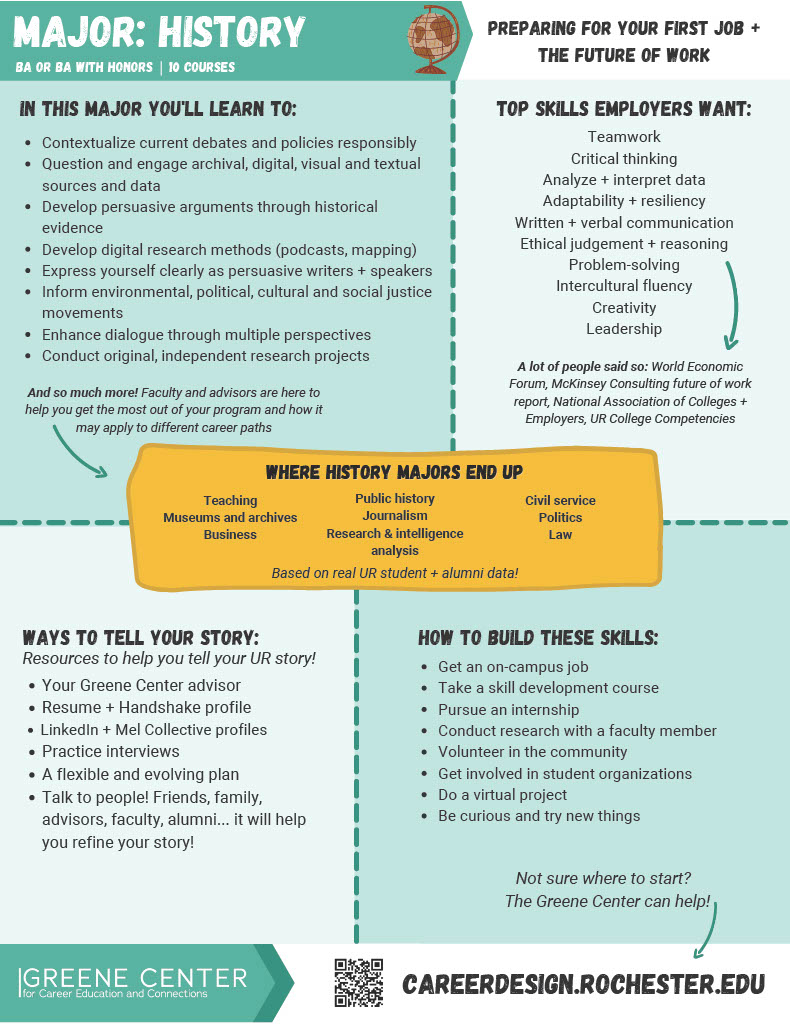Overview
The Department of History offers programs of study leading to a BA degree and a BA degree with honors. The department also offers a minor in history. Non-majors are welcome in most history courses and often become enthusiastic, successful students of history while pursuing other interests.
The department also offers 15 clusters for non-majors that fulfill the social sciences divisional requirement. These clusters consist of carefully selected sets of courses, and include both geographical (e.g., American History) and topical (e.g., War and Revolution) groupings.
Careers
The history concentration is valuable not only for those considering the historian’s vocation, but also for those pursuing careers in:
|  For a closer look: undergraduate/history-pathways.pdf For a closer look: undergraduate/history-pathways.pdf |
Courses
The department offers a wide range of courses in its undergraduate program that encompass social, economic, cultural, intellectual, political, and psychological approaches to historical problems and periods. Most of our 100- and 200-level courses are accessible to students with little prior knowledge of history.
In addition, faculty members offer 300-level seminars that explore more specialized historical problems. The 200- and 300-level courses designated with a “W” fulfill the upper-level writing requirement.
First-year and Transfer Students
The University of Rochester Department of History offers students courses that teach the analytic skills to interrogate our understanding of the past from medieval times to the present. Visit our welcome page for advice to first-year and transfer students interested in enrolling in history courses.
Working with an Advisor
Each student concentrating in history selects a faculty advisor based on a student's particular interests. The advisor helps majors and minors plan their programs. In addition, advisors provide information on courses, internships, and special research opportunities, as well as on making changes to a major or minor program.
Working with a Peer Advisor
Peer advisors are fellow students that assist others in finding courses that best suit their interests, exploring research opportunities, locating available on-campus resources, and declaring a major or minor. Although peer advisors work from within their respective departments, their goal is to provide students with an accessible and constructive alternative to the traditional ways of managing an academic career.
Senior Survey
If you are graduating this spring please fill out the online senior survey. The questionnaire will be used to create a short biography that will be read as you are called to collect your diploma at the history graduation ceremony and can be used as an opportunity for you to provide us with some feedback about your time here.
